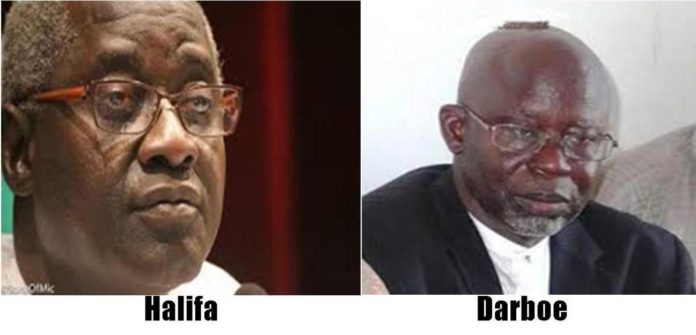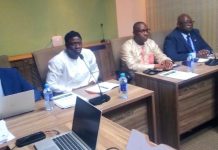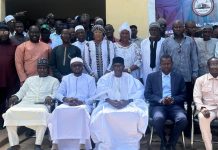By Awa B. Bah
Halifa Sallah Member for Serrekunda Constituency, Wednesday 14th March 2018, challenged Ousainou Darboe, Minister for Foreign Affairs during the oral response session in the fifth assembly of the first ordinary session of the 2018 legislative year, at NA complex in Banjul.
Halifa Sallah engaged Darboe on matters relating to migrant returnees and their status.
In conducting reintegration dialogue between his Ministry and the migrant returnees, Darboe said Government will not only be relying on the external partners in discouraging the youth from illegal migration, but that they have responsibility by way of holding regular dialogue with the returnees; that they will ensure returnees are reintegrated within the national development plan so as to be engaged in meaningful activities; that the agriculture industry is one of the areas where returnees can be fully and profitably engaged in society.
These efforts, he said, should not only be confined to the ministry of foreign affairs but is a collective effort. The Gambian youth he said can utilize their knowledge and skills in their country to get what they want.
On the issue of transparency relating to the 3.9 million Euros funding, the minister said his ministry is not administering the funds as a result, he declined to comment on that as he was not in a position to give an update on the disbursement of that fund.
Halifa Sallah member for Serrekunda put it to the minister that reintegration has social, physiological and economic components. He asked the minister if there are any reception centres for migrant returnees. The minister in his response said it makes them accountable when factors necessary for proper reintegration is mentioned. Gambia, he said, did not have that capacity to receive returnees of more than one thousand and keep them reintegrated at once. The ministry, he said, has not yet set up a reception centre for returnees because that ultimate responsible is with the ministry of the interior.
Halifa Sallah said Gambia is caught in a transition. He asked the minister to give an overview as to what appeals to The Gambia has been made to other international partners since returnees are not only from Libya but from many different countries and what measures has Gambia taken so far to get the cooperation from partners that this is not the time to deport Gambians back to their country.
The minister said there are discussions and negotiations between the government of The Gambia and principally the European Union as there is the good practice document that has been shared to the government of The Gambia to deal with the issues of returnee migrants including the country’s capacity to receive returnees. With regards to the United States of America, he said his ministry did not have any information as they do with others coming from European countries until the time of arrival of the deportees which makes it more difficult. The government he said will learn from it.
Halifa asked the minister whether he is of the view that the international community does not recognize the democratic dispensation of the Gambia as the country was helpless to the situation. Halifa put to the minister that what they, Gambia and returnees, need from partners is cooperation. He said that the international partners are not listening because they will continue to dump Gambians in The Gambia any time thereby creating tensions when the Gambia already has a transition to manage in order to move towards a genuine democratic situation.
The minister said he did not put it during his response that the international community did not recognise the situation of The Gambian democracy. He said it was due to this that they did not accept their best practice document “because if we do they will continue to dump our citizens”. That document, he said, is not taking into account the situation of the new Gambia. Migrant returnees, he said, are not a problem of the executive but a problem for the whole government.



















